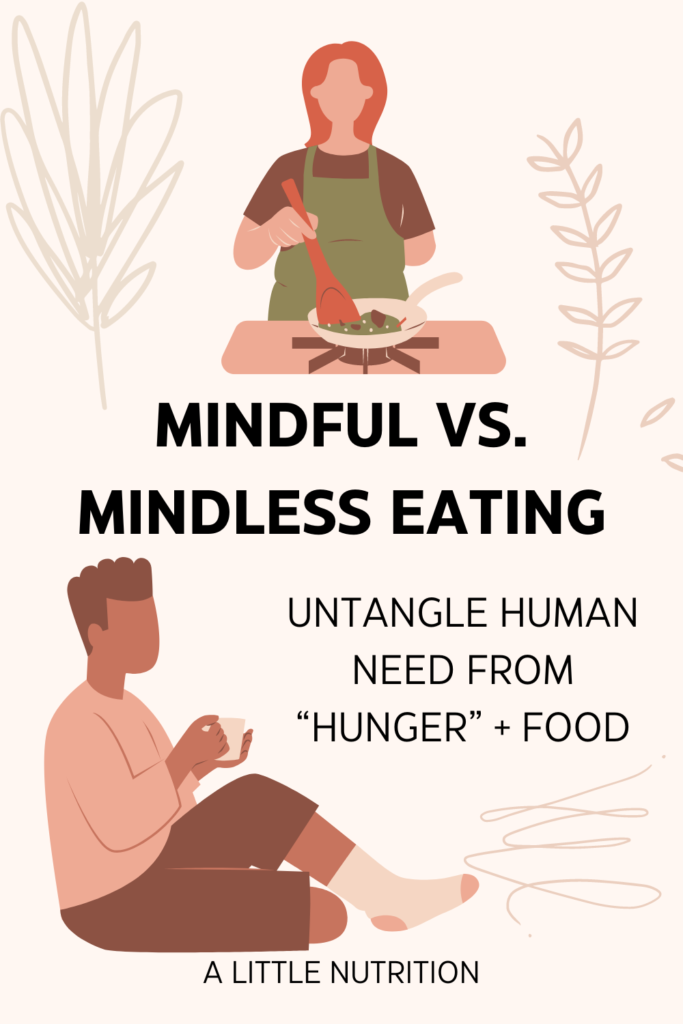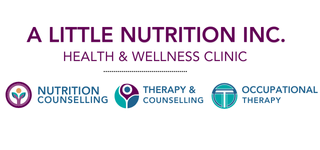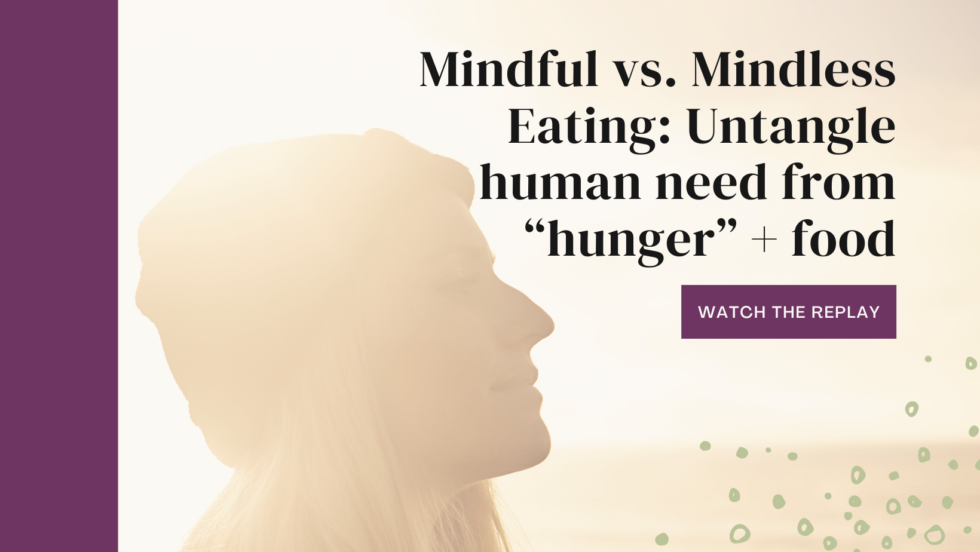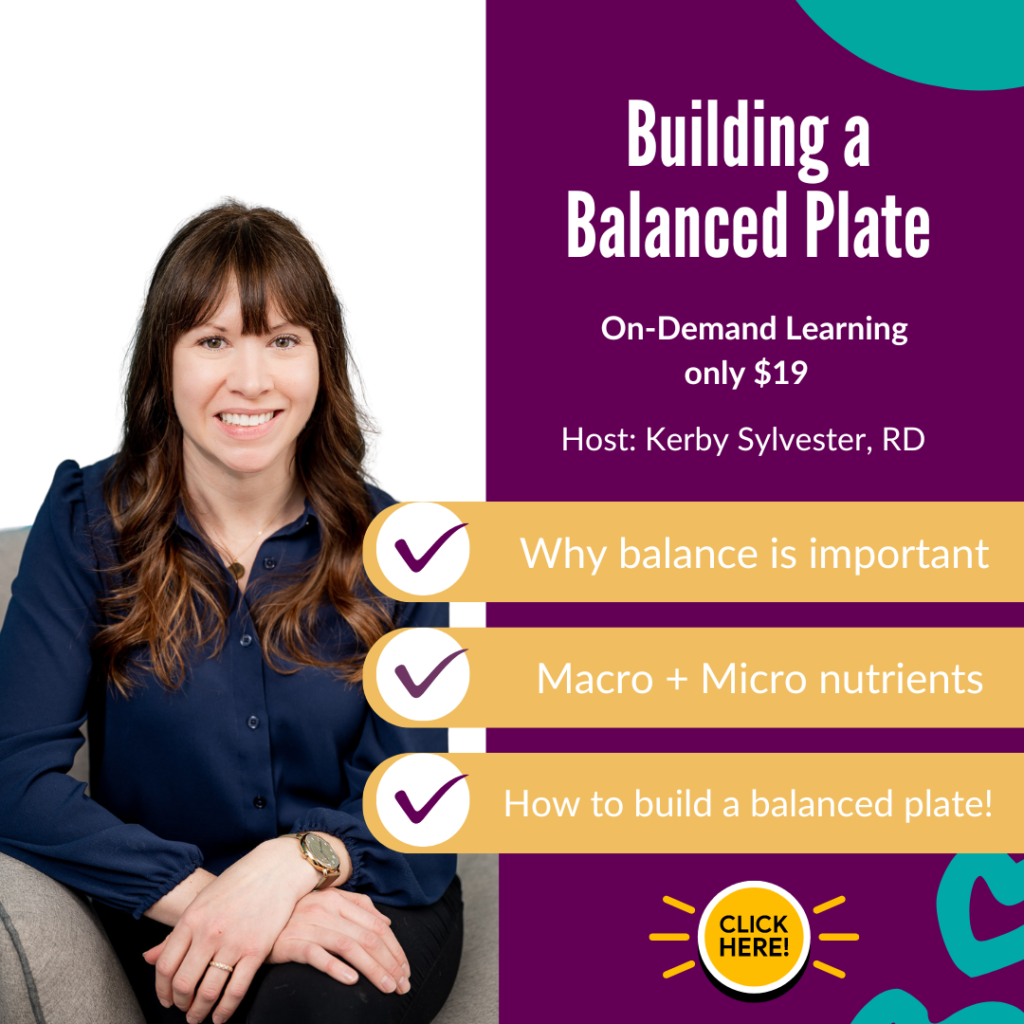Are you aware of how many times a day you eat without really paying attention? Mindless eating can become an automatic habit that often leads to overeating or under-eating which can take a toll on our physical, mental and emotional health. If we want to make sure that our bodies are getting the nourishment they need then it’s important to consider mindful eating. However, this isn’t always easy when it seems like food is constantly surrounding us – at work lunches, happy hours, movie snacks etc. In today’s blog post I’ll be discussing the idea of mindful vs. mindless eating and offering some tips for untangling human need from “hunger” + food so that we can truly get in tune with our own bodily needs.
What is Mindful vs. Mindless Eating?
Have you ever looked down at a bag of chips you were eating and wondered where all the chips went? Are you shocked when you don’t remember eating that many chips, yet they are all gone? This is called mindless eating or distracted eating, which is characterized by a lack of awareness and attention while eating. Mindless eating often happens when we are multitasking, distracted, or eating too quickly. In contrast, mindful eating is a practice that involves paying attention to the sensory experience of eating, such as the taste, smell, and texture of the food, as well as the body’s hunger and fullness cues. By being more mindful while eating, we can savor our food, make healthier choices, and improve our overall relationship with food.
There are many benefits of incorporating mindful eating into your daily routine:
- Stress reduction: Mindful eating can help reduce stress and promote relaxation by increasing awareness of the present moment and focusing on the sensory experience of eating. This can be particularly helpful for individuals who tend to use food as a way to cope with stress or emotions.
- Improved digestion: By being more mindful while eating, we can better chew our food, which can improve digestion and nutrient absorption. Additionally, mindful eating can help reduce digestive discomfort by allowing us to tune into our body’s hunger and fullness cues and avoid overeating.
- Increased enjoyment of food: Mindful eating can help us savor our food and enjoy the sensory experience of eating, which can increase our overall enjoyment of food and reduce the tendency to use food purely for emotional or pleasure-seeking reasons.
- Better relationship with food: Mindful eating can help us develop a healthier relationship with food by increasing our awareness of our own eating habits and patterns, and allowing us to make more conscious choices about what we eat and how we eat it.
- Mind-body connection: Mindful eating can help us connect with our body and develop a greater sense of body awareness. This can lead to increased self-awareness, self-acceptance, and self-compassion, which can have positive effects on our overall mental health and wellbeing.
Free Workshop: Learn How To Untangle human need from “hunger” + food
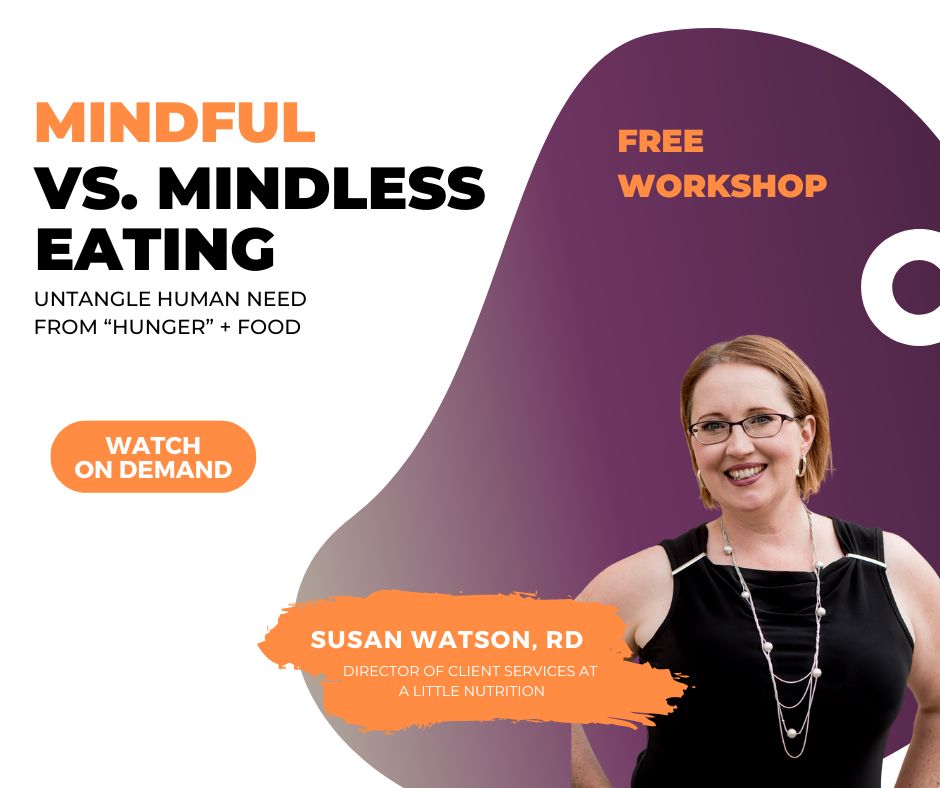
Register to watch the REPLAY here >>> https://event.webinarjam.com/go/replay/108/w6r35bq1s83hmnax
Discover the difference between mindful and mindless eating, and how it can impact your health and wellbeing.
Learn simple tips and techniques to cultivate a more mindful approach to eating and enjoy a healthier relationship with food.”
Attend this workshop and you will learn how to become more aware of your food choices and the environmental factors that can distract you from making healthier choices!
Try Nutrition Counselling!

NUTRITIONAL SERVICES OVERVIEW
When should I expect changes in my health from visiting a dietitian?
Clients typically notice positive changes in their eating habits and health after 3 to 5 appointments, spaced over 3 to 6 months. Some require appointments every 2 weeks until they adjust to their new eating habits, while others need only 1 or 2 appointments. The dietitian recommends a treatment plan during the initial appointment, tailored to specific health and lifestyle concerns. Developing strong habits like meal planning, preparation, and grocery shopping may require extra time. Emotional issues like dieting trauma, emotional eating, and poor body image may also need attention, and counsellors and therapists can help with stress, anxiety, depression, grief, and relationship struggles. Combining psychotherapy with health behavior changes has proven successful.
ARE MY APPOINTMENTS COVERED BY MANITOBA HEALTH OR EXTENDED MEDICAL HEALTH INSURANCE?
Manitoba health does not cover private Registered Dietitian services. However, if you have extended medical insurance through your employer, you may have coverage for Registered Dietitian and Therapist services. If you are uncertain about your coverage, you can call our office 1-204-515-7466 and we can look into it for you. In addition, if your plan allows for direct billing, we would be happy to directly bill your appointment and keep the out-of-pocket expense as low as possible.
HOW MUCH DO APPOINTMENTS COST?
Initial appointments are 80-90 minutes in length and cost $190
Follow-up appointments are 50-60 minutes in length and cost $135
HOW DO I BOOK AN APPOINTMENT WITH A REGISTERED DIETITIAN?
To book an appointment with one of our Registered Dietitians or therapists you can:
Phone: 204-515-7466
Email: admin@alittlenutrition.com
Book online: https://alittlenutrition.janeapp.com/
Pin Me For Later
